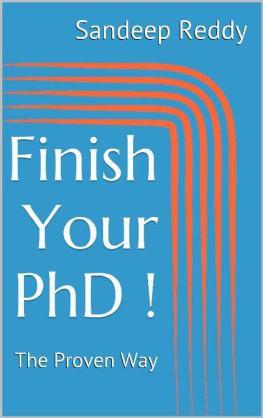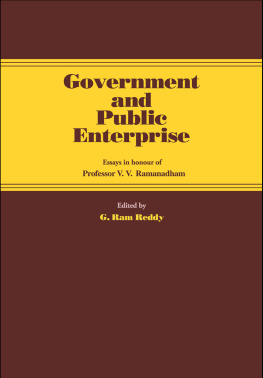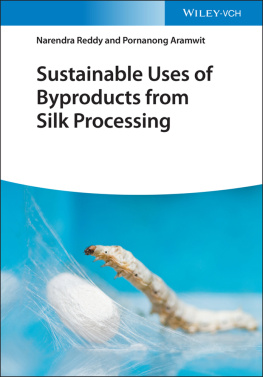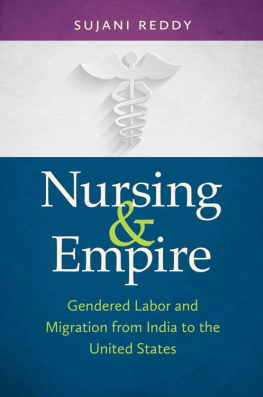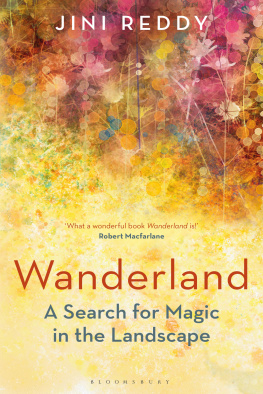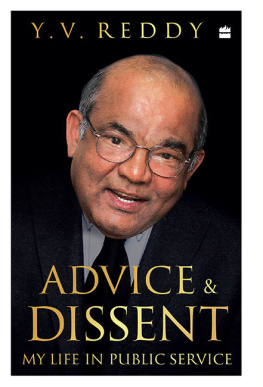Sandeep Reddy [Reddy - Finish Your PhD !: The Proven Way
Here you can read online Sandeep Reddy [Reddy - Finish Your PhD !: The Proven Way full text of the book (entire story) in english for free. Download pdf and epub, get meaning, cover and reviews about this ebook. year: 2017, genre: Home and family. Description of the work, (preface) as well as reviews are available. Best literature library LitArk.com created for fans of good reading and offers a wide selection of genres:
Romance novel
Science fiction
Adventure
Detective
Science
History
Home and family
Prose
Art
Politics
Computer
Non-fiction
Religion
Business
Children
Humor
Choose a favorite category and find really read worthwhile books. Enjoy immersion in the world of imagination, feel the emotions of the characters or learn something new for yourself, make an fascinating discovery.
- Book:Finish Your PhD !: The Proven Way
- Author:
- Genre:
- Year:2017
- Rating:4 / 5
- Favourites:Add to favourites
- Your mark:
- 80
- 1
- 2
- 3
- 4
- 5
Finish Your PhD !: The Proven Way: summary, description and annotation
We offer to read an annotation, description, summary or preface (depends on what the author of the book "Finish Your PhD !: The Proven Way" wrote himself). If you haven't found the necessary information about the book — write in the comments, we will try to find it.
Sandeep Reddy [Reddy: author's other books
Who wrote Finish Your PhD !: The Proven Way? Find out the surname, the name of the author of the book and a list of all author's works by series.
Finish Your PhD !: The Proven Way — read online for free the complete book (whole text) full work
Below is the text of the book, divided by pages. System saving the place of the last page read, allows you to conveniently read the book "Finish Your PhD !: The Proven Way" online for free, without having to search again every time where you left off. Put a bookmark, and you can go to the page where you finished reading at any time.
Font size:
Interval:
Bookmark:

Copyright 2017 by Sandeep Reddy
All rights reserved. No part of this publication may be reproduced, distributed, or transmitted in any form or by any means, including photocopying, recording, or other electronic or mechanical methods, without the prior written permission of the author, except in the case of brief quotations embodied in critical reviews and certain other non-commercial uses permitted by copyright law. For permission requests, write to the author, at the e-mail address below.
Email:
PREFACE
As thousands of students commence their PhD journeys each year, one thing is common to all these students: the uncertainty of completing their studies successfully. Unlike many other postgraduate programs, PhD students are largely on their own in navigating their studies. The students having to deal with significant academic and personal challenges can complicate circumstances. Of course, the home university and the supervisors may offer some level of support, but there is a general expectation that a PhD student work through his study program autonomously. This expectation and the candidates context create a unique paradigm.
In an ideal situation, a full-time PhD student is expected to complete their program in three to four years* from start to finish (enrolment to examination results). However, completion of studies in this time frame can be difficult with many students taking much longer time to complete. The extended time frames can be due to several reasons ranging from inability to obtain research results in time to additional time required to wrap up their thesis writing. Sadly in some instances, PhD students drop out of the program midway. These situations shouldnt in most instances occur if proper planning is undertaken and the candidate is determined to complete their studies.
I aim, through this book, to guide PhD students to complete their studies in an effective and efficient manner. The motivation for writing this book comes from my own experience of completing PhD studies in a period of two years and three months full-time equivalent** in challenging circumstances. This book provides information in a direct and easy-to-read manner while relying on scientific principles of learning. It is intended for the book to be read as whole but the structure of the book also lends itself to be read at different stages of the PhD journey. The content of this book has been presented in the context of the Australian and New Zealand PhD framework. However, the techniques discussed in this book should apply to any PhD program in the world.
Wishing you the best for your PhD studies,
Dr Sandeep Reddy MBBS DPH MSc MMgmt PhD
* In Australia and NZ.
** Four years and six months part time.

CHAPTER 1-PhD in a Nutshell
What is a PhD?
First, let us be on the same page as to what is a PhD program? PhD is the short term for a Doctor of Philosophy. PhD can sometimes be abbreviated as DPhil. A PhD is the highest university qualification a student can achieve with some exceptions. In some countries like the UK and Germany, one can achieve a higher degree than PhD. These are however uncommon and as it stands a PhD qualification remains as the terminal degree in most countries. Completion of a PhD means the student has demonstrated the necessary competencies to function as an independent researcher. This competency is proven by extensive and original contribution to the students field of research during their studies.
Generally, it takes about three to four years full time to complete a PhD, but the duration may differ depending on the students individual circumstances and the country in which you are enrolled in the PhD program. For instance, the average duration for completion of PhD studies in Australia and New Zealand is three to four years while in the USA it is five to six years. This is because; in the USA there is a requirement to complete coursework before continuing into the research component. This requirement adds to the duration of PhD studies. This requirement does not apply in most instances in Australia and New Zealand PhD programs as it is expected that admitted students have acquired necessary skills to undertake research in the chosen field of study.
In the first year of a PhD the student, following discussions with the supervisory panel, prepares a research proposal- a plan outlining how the student intends to collect data/obtain results for and analyse the same with associated time frames. It is also generally expected that an extensive literature review be undertaken in this year and presented to your supervisors. In the second year the student embarks on collecting research data or laboratory results. You may during this year present some of your results in conferences or seminars. In the third year with all having gone smoothly in the previous years, you write up your research findings in the form of a thesis. However, in reality, these time frames are not necessarily adhered to. It is, therefore, the purpose of this book to enable you to follow these timelines as far as possible.
What are the different types of PhDs?

Figure I. A PhD can be studied in different ways.
As we discussed PhD programs differ by country but the format of studying and completing PhD can differ within a country by each University. The most common way of completing a PhD is starting afresh with a research project and collecting data to support your research statement followed by writing up of your thesis. We will discuss this PhD route throughout this book. However, it is pertinent to discuss here an alternative PhD route. Some universities offer a PhD by Publication route for PhD applicants. Some universities require applicants to have substantial prior research and publication history but some other universities do not. So what is involved in this PhD study?
This type of PhD involves the candidate producing a series of publication ready articles or published articles, which take the place of traditional chapters in a thesis. The publications can be book chapters too. The publications are wedged between two substantial chapters-the introductory and conclusion chapters. While each article in the thesis can be read on their own there needs to be continuity or link across all the chapters/articles in the thesis. It is usually expected that you are the first author of all the publications and the articles written after your PhD enrolment. It is also expected the publications still meet the requirements for completing a PhD such as substantial, original contribution to the knowledge in discipline and meet conventional referencing standards.
There are several advantages in undertaking this type of PhD. An academic career, nowadays, is very much defined by publications. By publishing when you are undertaking your PhD itself gives you a head start. Publishing early provides you the skills to write and publish, thus helping your academic career later on. As publishing is a central feature in this PhD route you wont be able to push aside publishing for other considerations as you do with PhD by conventional routes. Also, completing your PhD through this pathway gives you the valuable experience of dealing with journals and the peer review process, which again will benefit your emerging academic career. Further considering each publication as a mini-project helps in completing your PhD pragmatically.
Font size:
Interval:
Bookmark:
Similar books «Finish Your PhD !: The Proven Way»
Look at similar books to Finish Your PhD !: The Proven Way. We have selected literature similar in name and meaning in the hope of providing readers with more options to find new, interesting, not yet read works.
Discussion, reviews of the book Finish Your PhD !: The Proven Way and just readers' own opinions. Leave your comments, write what you think about the work, its meaning or the main characters. Specify what exactly you liked and what you didn't like, and why you think so.

